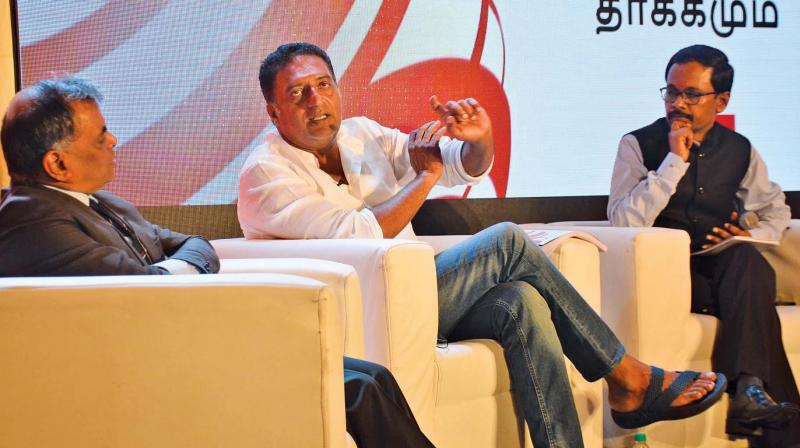Chennai: BBC releases research findings on fake news
Rangaraj Pandey, editor-in-chief of Thanthi TV, urged software developers to have features which demand credibility on chat apps.

Chennai: The BBC on Monday released findings of a research conducted on fake news and its implications in three countries — India, Kenya and Nigeria — in the city on Monday.
People in India are sharing fake news stories with nationalistic messages for “nation-building” purposes, with the consolidation of national identity taking precedence over the need to fact check, the research has found. This research came as part of the BBC's Beyond Fake News project, an initiative launched worldwide, at the event.
Speaking at a panel discussion, Congress spokesperson Kushboo Sundar urged people to think twice before forwarding news, especially ones which degrade women. “Would you do this if it were someone in your family? It isn't about any political party or any standing. This is about being human. Everyone has to learn how to be credible,” she said.
Rangaraj Pandey, editor-in-chief of Thanthi TV, urged software developers to have features which demand credibility on chat apps. “When someone forwards a message from me, the receiver should also know that the source of the message was me. It doesn't have to be my name. At least a traceable number,” said Rangaraj. Further, he added that free internet is the reason for all these problems. Someone needs to keep a check on it, he added.
Meanwhile, speaking to Deccan Chronicle, Aadalarasu, a research scholar, narrated his story of being on the wrong end of fake news. Aadalarasu and his friend Dinesh Balaji had visited a village in the Kalrayan Hills to distribute gifts to children at the local government-aided primary school there. They knew of the village after visiting it to study cultural anthropology and crowd behaviour. They had also taken part in the village festival and performed some street plays then, Aadalarasu said.
When they visited this time, nobody recognised them, Aadalarasu said. “One village elder lady asked us who we were and if we were there to kidnap their children. They accused us of learning new tricks, like giving children gifts to befriend them,” he said. The villagers further went on to house arrest the men and demand answers, none of which they believed. Finally, an educated man in the village understood what we were saying and rescued us, he said.
“The villagers are so scared, especially the women, that they don't want to believe anything. This was because, at the time, a WhatsApp message of child kidnappers was all over. Two people in the next village were murdered only days ago,” he said. The youth of the village, who could access Whatsapp had shown these videos to elders who were illiterate and convinced of kidnappers, he added.
The event also saw a workshop conducted by the Department of Media Studies, Anna University and Google News Initiative wherein tools to check doctored images and videos were taught to the audience.

